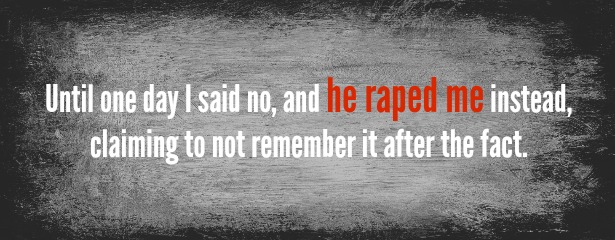Prof. Mary Anne Franks (left) and Rep. Scott Drury (right) present the IL “revenge porn” bill to the Judiciary committee in Springfield, IL.
Just in time for 2015, Governor Pat Quinn (D) announced a New Year’s resolution for the state of Illinois: end revenge porn. On Monday Quinn signed a new law making it a felony to post sexual videos or photos of another person without his or her permission. It goes into effect June 1, 2015. The law, modeled after legislation crafted by Professor Mary Anne Franks, Cyber Civil Rights Initiative (CCRI)’s Legislative and Tech Policy Director, criminalizes the practice of non-consensual pornography. Illinois residents have Representative Scott Drury (D) to thank both for sponsoring this law and tirelessly defending its integrity during an unusually lengthy and tumultuous legislative process. Of the sixteen states that have passed some form of revenge porn legislation, Illinois’s law is the best. Here’s why:
- Motive doesn’t matter. Illogically, some states’ laws require that the offender have the intent to cause emotional distress to the victim. While the intent to cause distress may drive the offender’s behavior in the classic revenge porn case – punishing an ex after a breakup –perpetrators can be driven by a number of other motivations. Some people engage in non-consensual pornography out of a desire for financial gain, for the “lulz,” for entertainment, for sexual gratification, or for no particular reason at all. Intent to harm requirements leave many serious violations of sexual privacy beyond the reach of the law – consider the celebrity “nude photo” hack and vicious GamerGate attacks against female game developers. Illinois’s law wisely prioritizes the harm to the victim over the motive of the offender. After all, the harm is devastating no matter the offender’s motivation.
- Selfies are included. The Illinois law applies to images that victims take of themselves.California’s original 2013 “revenge porn” law, for example, only applied to images taken by somebody other than the victim. Fortunately, California amended its law in 2014 following input from CCRI. The vast majority of intimate images (83%) originate as selfies.
- Strong punishments. Illinois leads the pack in taking this crime seriously. It does so in two ways: First, the law makes non-consensual pornography a Class 4 felony, punishable by one to three years in prison, while also hitting perpetrators in the wallet with fines up to $25,000 and restitution to victims for any costs incurred. Secondly, it includes an additional provision requiring forfeiture of any profits derived from the distribution of the material.
- Not just nudity. Some laws only apply when a victim’s “sexual parts” are exposed. The Illinois law, by contrast, recognizes that not all intimate sexual acts involve nudity. For instance, the Illinois law would apply when a victim is depicted performing oral sex or has been ejaculated upon, regardless of whether the victim is nude.
- Downstream distributors. Several revenge porn laws punish only the original non-consensual distribution, doing nothing to deter secondary recipients from forwarding and redistributing the images. Illinois solves that problem by employing a “reasonable person” standard. The law considers whether a reasonable person would know or understand that the image was to remain private and that the person depicted has not consented to the dissemination. This provision will help prevent material from going viral when it is clear that the distribution is non-consensual. In other words, this law requires that people think before they click.
- It honors the First Amendment. The Illinois law is narrowly tailored, so as not to sweep up expressive conduct vital to a free society. The statute doesn’t apply to images that are distributed for a “lawful public purpose.” Other exceptions include images that are distributed in connection with the reporting of unlawful conduct, lawful criminal investigations, and images depicting voluntary exposure in public or commercial settings. That means no journalist ever has to fear being prosecuted under this law for publishing photographs of a topless protest and no porn enthusiast needs to worry about going to jail for forwarding links to his favorite commercial hardcore sites.
- Doxxing. The Illinois law recognizes that personal identifying information of over half (59%) of victims is posted alongside nude images, including the victim’s full name, email address, social network screenshots, home address, workplace, school etc. The harm caused by the publication of this identifying information cannot be overstated. This disclosure of private information jeopardizes victims’ employment, employability, relationships, reputation, and safety. Revenge porn consumers often interpret victims’ contact information as an invitation to stalk and threaten them, and the material often dominates victims’ online presence. The Illinois law applies when a victim is identifiable from his or her face as well as when as other identifying information is displayed in connection with the image.
By Carrie Goldberg, Esq., a lawyer in Brooklyn at C. A. Goldberg, PLLC and board member at Cyber Civil Rights Initiative.



